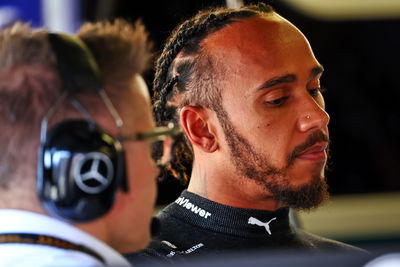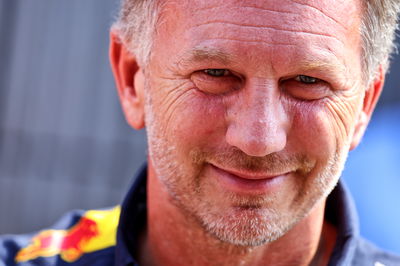Why Mercedes expected Lewis Hamilton’s “race of misery” in Baku
Toto Wolff says Lewis Hamilton's "race of misery" came as no surprise, writes Lewis Larkam in Baku.

Mercedes F1 boss Toto Wolff says Lewis Hamilton’s “race of misery” came as no surprise to the team after taking an engine penalty.
After qualifying seventh in Baku, and two places behind teammate George Russell, Mercedes elected to fit a new power unit in Hamilton’s W15, forcing him to start from the pitlane.
The seven-time world champion endured a frustrating race, finishing inside the points in ninth only after Sergio Perez and Carlos Sainz wiped each other out in a huge penultimate lap crash.
“We knew it was going to be a race of misery because it’s so difficult to overtake in Baku, and that’s what it was,” Mercedes team principal Wolff admitted.
“The moment you come close you overheat the tyres and then you go backwards, so that’s what happened to him.”
Mercedes knew they would have to introduce a new power unit into Hamilton’s pool at some stage this season after the 39-year-old Briton suffered an engine failure in Australia earlier this year.
Explaining the rationale behind the decision to take the penalty in Baku, Wolff said: “I think there are two difficult philosophies and we discussed it at length.
"One is that you just swallow the pill here because starting from P7 we don’t know where that would have gone, and then doing it in Austin.
“But we feel that Austin is an opportunity so that was the decision. Right or wrong, I don’t know, but it was a close call.”
Speaking to media including Crash.net after the race, Hamilton revealed a component on his car had not been “correctly built”.
“It was the worst balance I’ve probably ever had - one of the worst balances,” he added. “Basically I had so much front end but no rears.
“It’s not the way you drive. I had to yank the steering to break the traction from the front, slide the front through every corner. It’s the weirdest way I had to drive.
"I knew that I wouldn’t be able to overtake. It’s difficult to follow in the middle, at least be close at the end. I don’t know why our pace was so bad on our side. It happens.”












